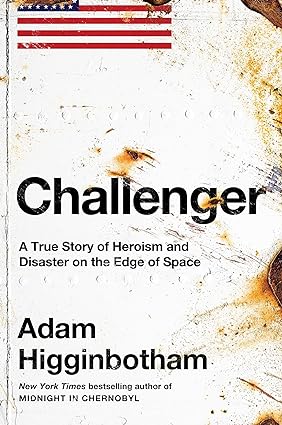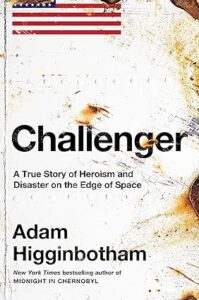
On January 28, 1986, the space shuttle Challenger disintegrated just seventy-three seconds after liftoff, tragically claiming the lives of all seven crew members, including Christa McAuliffe, a schoolteacher from New Hampshire. The disaster, witnessed by millions of Americans, left a lasting impact on the nation, challenging its optimistic outlook on the future. However, the full story behind the tragedy has remained untold until now.
“Challenger: A True Story of Heroism and Disaster on the Edge of Space” offers a comprehensive account of the events leading up to the Challenger disaster and its aftermath. Drawing from extensive archival research and original reporting, the book follows key individuals, including the crew members, shedding light on their lives and the circumstances that led to the fateful flight.
Author Higginbotham meticulously examines the ambitious yet flawed decision-making process that culminated in the Challenger launch. He explores how political pressures, cost-cutting measures, and a drive for national prestige compromised safety protocols, ultimately resulting in the disaster. The narrative also highlights the investigative efforts that followed, driven by whistleblowers and leaks, which sought to uncover the truth behind the tragedy.
Through detailed storytelling, “Challenger” not only chronicles the history of the shuttle program but also honors the lives of those affected by the disaster. It portrays the dedication of the men and women who worked tirelessly to launch the shuttle and the warning signs that were tragically overlooked or concealed.
A compelling blend of human drama and scientific exploration, “Challenger” offers a nuanced understanding of a pivotal moment in history. It is a tribute to the resilience of the human spirit and a reminder of the complexities inherent in the pursuit of space exploration.
DOWNLOAD
Adam Higginbotham’s “Challenger” is a gripping and meticulously researched account of the space shuttle Challenger disaster that occurred on January 28, 1986. In just seventy-three seconds after liftoff, the Challenger exploded, claiming the lives of all seven crew members, including Christa McAuliffe, a teacher who was set to become the first civilian in space.
Higginbotham’s narrative reconstructs the events leading up to the tragedy, offering a detailed examination of the flawed decision-making processes, political pressures, and organizational failures that contributed to the disaster. Through extensive archival research and original reporting, Higginbotham brings to light the complex interactions between key individuals, including the crew members, engineers, and NASA officials, leading up to the ill-fated launch.
One of the book’s strengths lies in its portrayal of the human side of the tragedy. Higginbotham delves into the lives and backgrounds of the crew members, providing a poignant reminder of the individuals behind the headlines. He also explores the aftermath of the disaster, including the investigative efforts to uncover the truth and the impact of the tragedy on NASA and the space program as a whole.
“Challenger” is more than just a recounting of a historical event; it is a cautionary tale about the consequences of organizational failures and the importance of prioritizing safety over expedience. Higginbotham’s narrative skillfully navigates the complexities of the Challenger disaster, offering readers a comprehensive and compelling account that honors the memory of those who lost their lives.
In conclusion, “Challenger” is a masterful work of non-fiction that sheds new light on one of the darkest moments in space exploration history. Higginbotham’s meticulous research, coupled with his engaging storytelling, makes “Challenger” a must-read for anyone interested in the history of space exploration or the human side of technological disasters.




